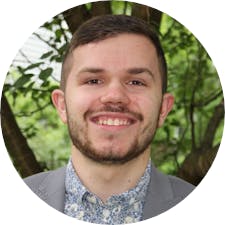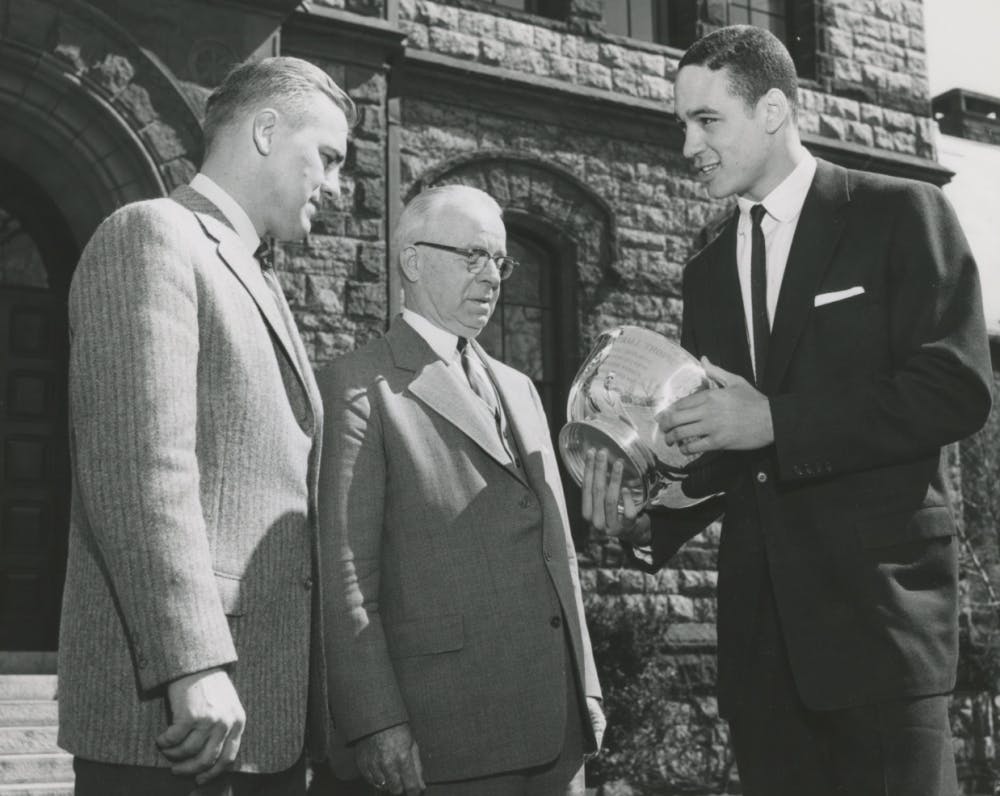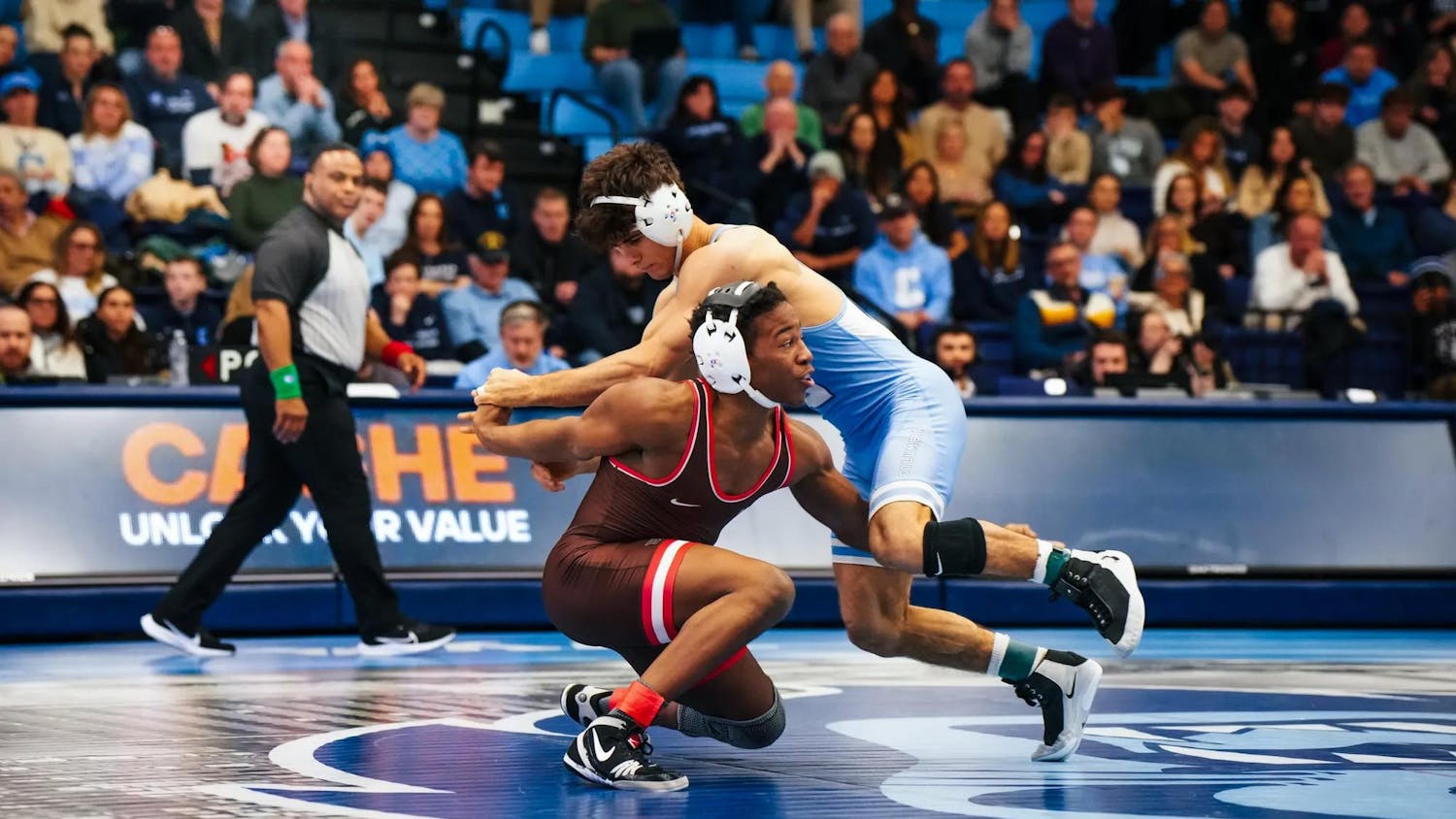This article is the second in the series, “Pioneers On The Playing Field.”
Last week, The Herald spotlighted Black coaches and athletes who played foundational roles in building today’s Brown athletics program. This week, two modern-day Black athletes who had success on the field at Brown and have gone on to have impressive careers outside of sports will be featured. The Herald spoke with former football player Augustus White ’57 and former soccer player Rebekah Splaine Salwasser ’01 about their experiences at Brown, their careers on and off the field and the ways they have made a difference in the world.
Dr. Augustus White, Class of 1957, Football
“Football was a big part of my life. I was not a great football player, but I loved the game and I wanted to compete and I had the opportunity to do that at Brown," Augustus White ’57 told The Herald.
Despite his modest self-assessment, White had an impressive career while on the Brown football team. Primarily starting at defensive end, White was a member of winning teams all four of his seasons at Brown.
He received a number of honors, including the Ivy League Football Award, given to an Ivy League football player who makes significant contributions outside the field of play, and the Class of 1910 Award, given to the senior on the Brown football team with the highest scholastic average.
White was awarded the game ball from the 1956 Brown-Harvard game, which Brown won 21-12. White still keeps the game ball and the Ivy Football Award as mementos of his time on the Brown football team.
White’s Brown experience extended far beyond the football team. He graduated as an honors student in Psychology on the pre-medical track. This combination of rigorous academics and varsity football made White’s undergraduate life a busy one, but he saw it as a beneficial experience.
“It made for a tight schedule, but that’s good,” he said. “I got conditioned to meet those requirements (of the medical profession) and to be successful in large part because of Brown."
White was the first African-American student to join any national fraternity when he joined Delta Upsilon. He went on to hold multiple positions in the fraternity, becoming president of Brown’s chapter his senior year.
After Brown, White went on to have a pioneering career, becoming the first African-American to graduate from Stanford Medical School. He served as a combat surgeon for a year during the Vietnam War, which he described succinctly: “War is hell. Most people have nowhere near the realistic concept of war,” White said.
White later worked as a professor and surgeon at Harvard Medical School. Though he has retired from surgery, White still lectures about issues of discrimination and inequity in healthcare. He has written two books, both based on his experience in the medical field. His first book, “Seeing Patients: A Surgeon’s Story of Race and Medical Bias, With a New Preface” (2019), looks at issues of racism and injustice in medicine as seen through his perspective as a longtime surgeon.
White emphasized that there are 13 groups of people who, based on their gender identity, race, ethnicity or other characteristics, experience healthcare discrimination. Combatting this discrimination has been his recent focus: “I’ve been reading, writing and lecturing to try to do what we can to try to eliminate those disparities, which is a huge job, but certainly we must try,” he said.
White also noted how the COVID-19 pandemic has made disparities in healthcare “clear and screamingly obvious,” underscoring the need for change. His new book, “Overcoming: Lessons in Triumphing Over Adversity and the Power of Our Common Humanity” (2021) discusses a number of people who have been able to overcome adversity.
According to White, the book "discusses what some of the common elements are of our humanity. We all have certain basic characteristics of our brains and of our human nature that can serve as resources to help us when we are faced with adversity.”
He said that he is proud of the student movements for social justice at Brown and expressed faith in the ability of humanity to do good — a belief informed by his research.
“We found in some of our reading that there’s an altruistic part of the brain that’s designed to do the right thing,” he said. Our “spheres of influence” as individuals, he said, can “all add up to tremendous impact."
Rebekah Splaine Salwasser, Class of 2001, Soccer
“She gave Brown a lot more than she took,” former women’s soccer coach Phil Pincince said of Rebekah Splaine Salwasswer ’01. “We were very lucky that she said ‘yes’ to matriculate to Brown.”
After being sidelined by an ACL tear her first soccer season, Salwasser went on to have a distinguished athletic career, including winning Ivy League Rookie of the Year for women’s soccer her sophomore year.
Pincince emphasized Salwasser’s “dynamic” leadership skills, sense of humor, her “second to none” ability to protect the ball and her skills with kids, an attribute that has distinguished Salwasser throughout her career.
Her Brown soccer career provided “great memories, (a) great time and … a really wonderful stepping stone to go on and play semi-professionally and professionally,” Salwasser told The Herald.
After her senior season, Salwasser did not expect to continue her soccer career at a professional level. “I had no idea that even playing soccer in the U.S. was an option professionally for women,” she said. “As a senior, I kind of let it all go free. I didn’t train, I put on some weight, I hadn’t touched the ball.”
In December of 2000, though, she received an invitation to a combine for the newly founded Women’s United Soccer Association. “I played like crap, of course,” she said.
While Salwasser ended up going undrafted in the WUSA, this marked an important experience for her. “Having this experience of not being the best, of not making the team, was a real learning process for me,” she said.
After going undrafted, Salwasser joined the Boston Renegades of the USL W-League, a semi-professional team. She spent two seasons with the Renegades, captaining the team both years and leading the team to two national championships.
After her time with the Renegades, Salwasser joined the Boston Breakers, a WUSA team, and played with a number of national team players. “All these amazing, amazing women I had looked up to my whole soccer career, I was finally playing with them, so it was just this incredible experience,” she said. Salwasser ultimately played just one season of professional soccer, as the WUSA folded in 2003.
After her professional soccer career ended, Salwasser shifted her focus to nonprofit work. She kept playing with a semi-pro soccer team until 2011 while simultaneously working a full time job.
At the age of 24, she became the executive director of Charlestown Learning and Lacrosse Center, a small nonprofit in Boston combining academics with athletics, specifically lacrosse, for which she was an All-American in high school.
Salwasser described the job as the “scariest, most risky” job she could take. It forced her to learn how to run a nonprofit on the fly, but was “terrifying and rewarding in all the best ways.” She subsequently took the role of director with the Boston Celtics Shamrock Foundation.
In 2018, Salwasser was recruited to lead the Boston Red Sox Foundation — “just about the best job I’ve ever had,” she said. “I have a deeper integration at the executive level, and so to have that vantage point and to have that autonomy and authority is really wonderful, particularly now, as we think about the need for social justice, equity, inclusion and diversity with all that’s been happening in our country,” she said. “To have a person of color at the helm of an organization that has incredible resources is valuable and important.”
The Boston Red Sox have a history of racist incidents taking place at Fenway Park. In 2017, Baltimore Orioles outfielder Adam Jones was called racial slurs and had a bag of peanuts thrown at him. “That’s not an isolated incident. There are incidents of racial slurs more often than you know that happen at the park,” Salwasser said. She emphasized that such racist incidents are symptoms of a broader societal issue. “It happens in public and in private more than people care to admit. I think this is a bigger, larger indication of a lot of work that we need to do and a lot of learning that we need to do,” she said.
Salwasser also emphasized that diversity in baseball is a significant issue. At the start of the 2020 MLB season, African American players comprised approximately eight percent of major league rosters.
The Red Sox Foundation runs a program called Reviving Baseball and Softball in the Inner Cities aimed at addressing this disparity. The program brings together hundreds of kids and teenagers from all neighborhoods of Boston to play baseball and softball. The Red Sox Foundation ensures the presence of quality coaches, pays for equipment and uniforms and secures access to fields.
“It’s that type of access that we’ve got to do better at,” Salwasser said. While the program was unable to run in 2020 due to COVID-19 and its status for 2021 is still unclear, she hopes the RBI program can return in full in 2022.
Salwasser plays a key role in the push for equity and inclusion within the Boston Red Sox organization, chairing the team’s social justice board. After a series of discussions with the organization's members of color, the organization created a detailed action plan that defines its goals, including working with local minority-run businesses, creating policies for incidents of hate speech and ensuring more equitable access to Fenway Park.
Salwasser is optimistic about the direction of the team. Prominent members of the organization, like President of Baseball Operations Chaim Bloom and General Manager Brian O’Halloran are “wholeheartedly, authentically committed” to the goal of social justice, Salwasser said.
“We have engagement, we have buy-in and we have hope,” she said. “That’s (a) really important set of ingredients.”

Peter Swope was the senior editor of digital engagement for The Brown Daily Herald's 133rd Editorial Board. He previously served as a Sports section editor and has also written stories for University News. Peter is a senior from New Jersey studying history.





